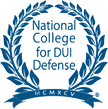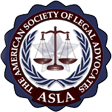DUI Vehicle Searches, Warrants & Blood Tests
Following a DUI arrest in King County, officers could obtain search warrants in order to search the contents of your car, or more importantly, obtain a blood sample. If you have been arrested for a DUI in Washington and the police have obtained a search warrant against you, contact a search warrant defense attorney in Seattle from Emerald City Law Group as soon as possible.
The police need to have reasonable suspicion that you are driving while impaired to pull you over. This is a relatively low standard, yet it must be based on facts and not an officer’s “hunch” or “gut feeling.” The standard for a DUI arrest in Seattle is higher and known as probable cause. For there to be probable cause, an officer must have amassed facts that support the belief that you are impaired. This could be the results of field sobriety tests or a roadside breath test, answers to your questions, or other observations.
Discuss all your options today by calling 206-973-0407 to schedule a free, initial consultation.
The Seattle DUI Arrest Process
If officers believe they have probable cause to arrest you for a DUI, they will inform you that they are placing you under arrest. If you are already out of the vehicle, they may ask you to turn around so they can cuff you or they may escort you to their police vehicle. If you are still in your own vehicle, they will ask you to step out.
Shortly after the officers place you under arrest, they must read you your Miranda rights, which include:
- You have the right to remain silent,
- Anything you do or say can be used against you in court,
- You have the right to an attorney, and
If you cannot afford a DUI attorney in Seattle, the court will provide one for you.
Implied Consent & DUI Testing
Next, the officers must give you implied consent warnings. An officer is required to inform you of Washington’s implied consent law, RCW 46.20.308, which states that you are legally required to submit to a requested chemical test to determine your blood alcohol concentration (BAC) in connection with a lawful DIU arrest.
The warnings include the potential civil and criminal consequences if you refuse to take a breath, blood, or urine test or if the results put you over the legal limit, which is .08 percent for drivers over 21, .01 percent for underage drivers in Washington, and .04 percent for a commercial driver suspected of DUI.
Based on RCW 46.61.506, which lays out the rules for when BAC test results can be admitted into evidence, the officer will conduct a mouth check to make sure no foreign substance inside your mouth can contaminate the test. Then, the officer will directly observe you for at least 15 minutes to make sure you do not put anything in your mouth, smoke, vomit, or burp – all of which could affect the outcome of a BAC test.
Finally, the officer will ask you to submit to a breath or blood test. If you refuse, you will be given a notice of a driver’s license suspension. You may also be told to wait as the officer attempts to obtain a warrant for a blood sample.
Whether or not you provide a breath or blood sample, you will either be released or booked into jail. If you are released, you should be given paperwork with your initial court date on it. You may have to call for a ride or an officer may drive you home. Your vehicle will have been impounded based on RCW 46.55.360, so you will not be able to drive yourself home. If you are booked into jail, you may have to wait to be arraigned by a judge and post bail in order to be released.
Vehicle Searches Related to a DUI
An additional aspect of your DUI arrest in Seattle may be a search of your person or vehicle. If the police reasonably fear for their safety, they can pat you down to feel for any potential weapons hidden within your clothing. If they have reason to believe you are impaired due to drugs, they can also feel for drugs or related paraphernalia.
The police may want to search your vehicle to obtain additional evidence of a DUI. They will need either probable cause that your vehicle contains evidence of the crime or your permission to do so. Probable cause is often established when there is evidence in plain sight. For instance, if there are empty alcohol bottles on the floor or seat of your car, then the police will search the vehicle and confiscate these bottles as evidence.
If the police do not have probable cause to search your vehicle, they will ask for your consent. You have the right to say no.
If officers are unable to search your vehicle during the arrest, they can ask for a warrant. However, this is not common. In any case, there is still a chance for the officers to obtain evidence while conducting an inventory related to the vehicle impoundment. Washington law requires your car to be impounded for at least 12 hours after a DUI arrest. During this process, the law enforcement agency has the right to conduct a standard inventory, which may turn up evidence that can be used against you in court.
Search Warrants for Blood Samples
Based on the U.S. Supreme Court’s decision in Birchfield v. North Dakota, breath and blood tests must be treated differently. A breath test can be required without a warrant because it is considered minimally invasive. If you refuse to take a breath test after a lawful arrest, you can face both civil and criminal punishments. The same cannot be said for a blood test, which is considered much more invasive.
The police cannot require you to submit to a blood test without a warrant, which means you have the right to refuse. If you refuse to give a blood sample, you can only face civil consequences and not additional criminal punishments. The police also do not have the right to take a blood sample from you while you are unconscious.
However, you may be required to provide a blood sample whether you are conscious or not. If the police can meet the standard of probable cause, a judge may approve a warrant. This search warrant may require you to provide a blood sample, or if you are in a medical facility, for the staff to draw and provide a blood sample.
Call a DUI Lawyer for Help
If you’ve been charged or have question about a DUI search, call Emerald City Law Group at 206-973-0407. We can discuss your specific case in a free and confidential consultation.






